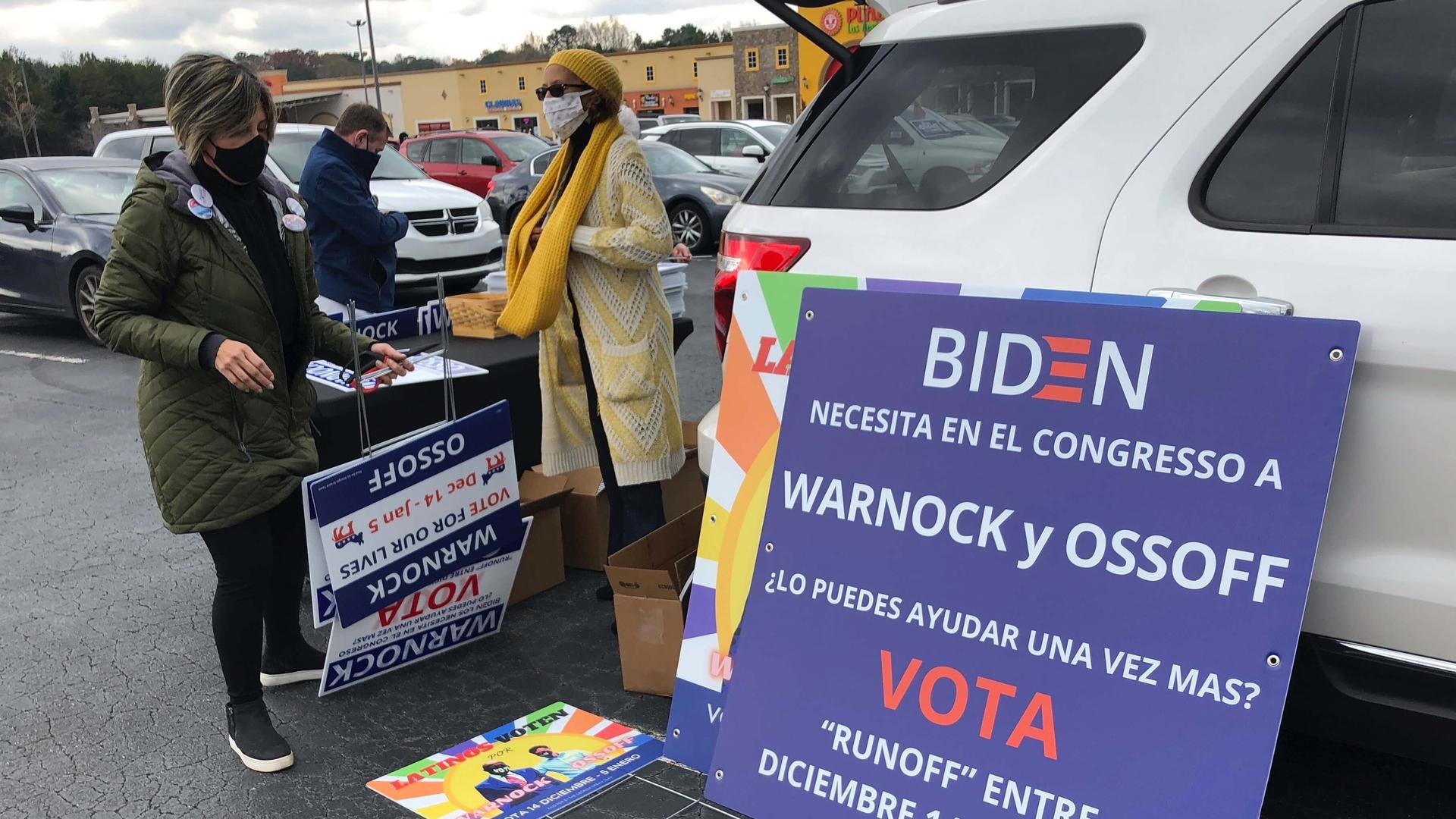Latino communities targeted by disinformation ahead of Georgia’s Senate runoffs
This story is part of “Every 30 Seconds,” a collaborative public media reporting project tracing the young Latino electorate leading up to the 2020 presidential election and beyond.
Now that 61-year-old Eric Richner is retired, he enjoys spending time with his family in Gwinnett County, a suburb of Atlanta, and keeping up with the news. His go-tos include the BBC and the local paper.
“I come from a generation that, you know, we watched the nightly news every day,” Richner says.
He likes knowing what people are talking about in the US, and in the Dominican Republic, where he has relatives. It also means checking Twitter, YouTube and keeping up with his many WhatsApp groups.
He’s also stopped believing what he sees on social media and messaging groups. That lack of trust can leave an opening for misinformation to spread unintentionally, as well as disinformation — wrong or misleading information that is shared on purpose.
“In the last few years things have been very strange. … You no longer trust your source of information and you have to go deeper.”
“In the last few years things have been very strange,” he says. “You no longer trust your source of information and you have to go deeper.”
Georgia’s Senate runoffs are set for Jan. 5. And just like with the presidential election, there’s concern about mis- and disinformation targeting the state’s voters — including its growing Latino community.
Related: ‘Georgia, all eyes are on you’: Activists galvanize Latino voters ahead of runoffs
A recent report by Avaaz, a global civic organization, warned of 20 Facebook pages spreading a disproportionate amount of misinformation about Georgia’s elections. Two of the flagged pages were in Spanish and made inaccurate claims of large-scale voter fraud.
Latinos make up about 5% of Georgia’s electorate, according to the Pew Research Center, which is far fewer than in places like Florida. But with President-elect Joe Biden winning Georgia by just under 12,000 votes, the message is clear: Everyone’s vote matters.
“There’s been a lot of money coming into Georgia. Both from the democratic side and from the Republican side,” says Tania Unzueta, political director for Mijente, a national immigrant rights group. She said a lot of disinformation comes from political action committees and the parties themselves.
“Whether it’s on advertisements or whether it’s the mailers we all get at home,” she says.
She said there are many reasons Latino voters are susceptible to mis- and disinformation. One is the language barrier. Another, Unzueta said, is that political parties haven’t done a great job at outreach, which can be harder in Georgia.
“For people who do elections and reach out to Latinos, we’re used to turf that’s a lot more dense,” Unzueta says. “And I think people should know that sometimes we’re talking about reaching 20 people in one county. And because people are all spread out, that takes us a whole day.”
Latinos, not unlike other communities with roots elsewhere in the world, also might receive dubious information shared by relatives in other countries. Or through targeted campaigns.
“Our elections are global. … Look, The Russians are here all the time, and the Chinese are here. Everyone wants something to do with the outcome of these elections.”
“Our elections are global,” says Eduardo Gamarra, a political scientist at Florida International University in Miami. “Look, The Russians are here all the time, and the Chinese are here. Everyone wants something to do with the outcome of these elections. So, why not the Latin Americans?”
Related: Here’s how 8 young Latino voters view the 2020 US election
In terms of Latino voters, Gamarra noted how misleading information created in parts of Latin America and the Caribbean spread in the run-up to the November election, often through YouTube and WhatsApp. He also said talk radio is an enormous vehicle for spreading misinformation.
Gamarra also added that disinformation affects everyone, not just Latinos.
“It plays on the real susceptibilities of people,” Gamarra says.
For Richner, the retired voter who lives near Atlanta, he describes many of the ads he has seen ahead of the runoffs as “mudslinging,” to the point where he’s struggling to find reliable information. He’s already voted, but instead of tuning into ads and news to make a decision, he asked himself what vision he wanted for the country.
“I actually disregarded everything in the news, everything all my friends are saying and said, OK, I think this is the best for the country,” Richner says, a decision based on his own judgment.
